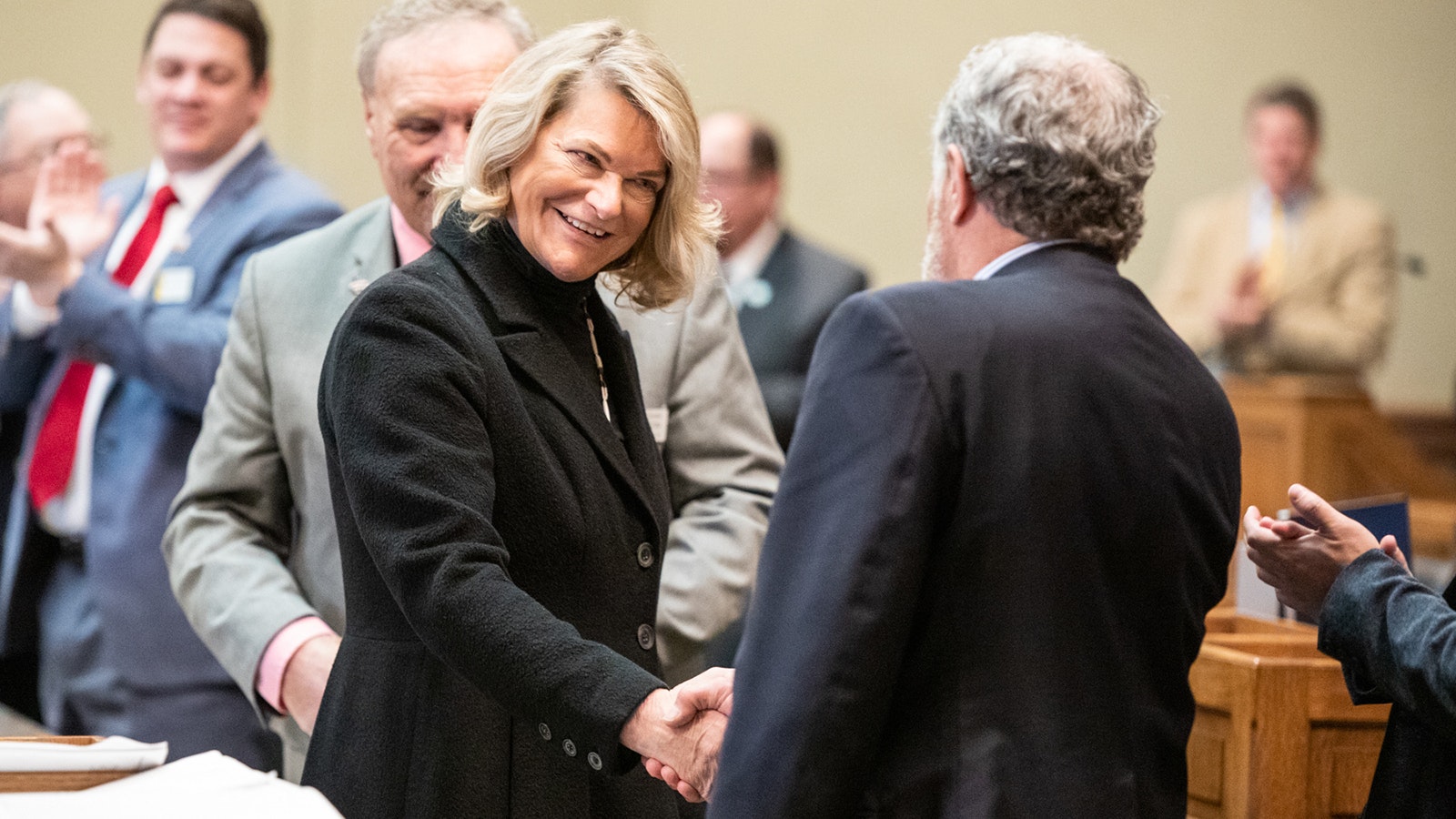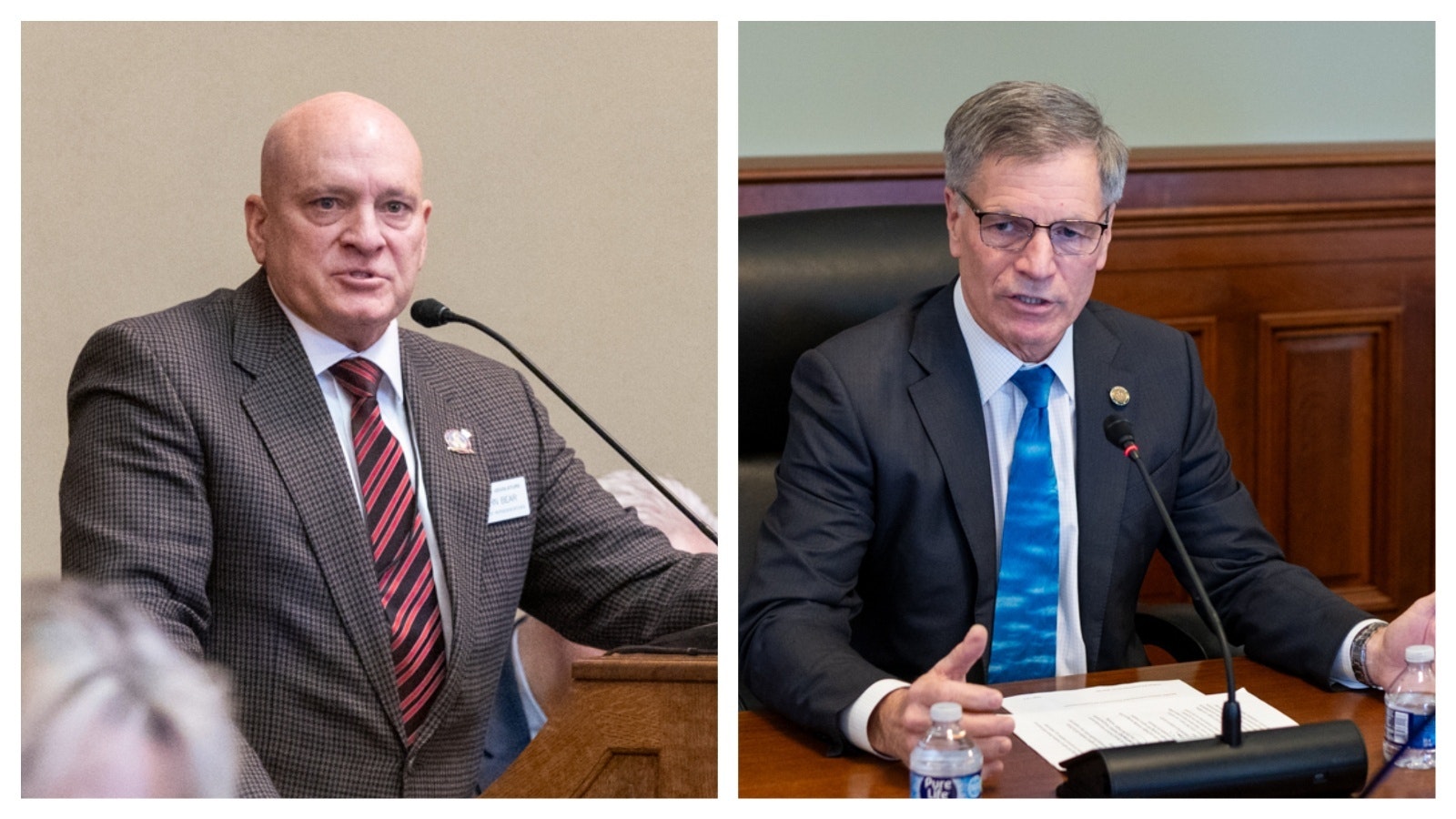U.S. Sen. Cynthia Lummis has co-sponsored legislation that would allow federal land to be used for public housing.
The Helping Open Underutilized Space to Ensure Shelter Act (HOUSES) would open up parcels of federally owned land for states or local governments to buy for the purpose of increasing the availability of housing.
“The purpose of the bill is to make state and local governments able to buy local land for home development,” Lummis told Cowboy State Daily on Wednesday afternoon.
The legislation would amend the Federal Land Policy and Management Act and also proposes that state or local entities would be allowed to buy federal public land at a discounted rate “well below market value,” ratioed by a Payment in Lieu of Taxes price.
The HOUSES Act was first introduced in 2022 and was recently reintroduced by Lummis, bill sponsor Sens. Mike Lee, R-Utah, John Barrasso, R-Wyoming, and Dan Sullivan, R-Alaska. Lack of affordable housing has become not only an issue in Wyoming in recent years, but also throughout the entire West.
“Housing affordability is a nationwide problem. Rent is high and mortgages are even higher thanks to Bidenomics,” Barrasso said in a statement. “The HOUSES Act will provide new options to state and local governments by allowing them to buy certain lands from the federal government for residential purposes. As more people move to Wyoming, growing communities need options to expand housing.”
What It Does?
Lummis said the legislation could have a particular benefit for a number of Wyoming communities like Jackson, Sheridan and Cody that border federal land, which makes up nearly 50% of Wyoming’s total acreage.
“Affordable housing is becoming less and less capable in Wyoming,” she said.
The Joint Economic Committee of Congress estimates the bill would lead to the construction of 2.7 million more homes in the U.S. and alleviate Wyoming’s entire housing shortage.
Under the bill, development would be limited to federal lands directly adjacent to where existing sewer infrastructure could be developed and would also exclude particularly sensitive tracts of land such as wilderness areas and national monuments. This would leave out most federal land aside from BLM and Bureau of Reclamation property.
It would ensure that lands are primarily used for housing with a mandate that at least 85% be dedicated for residential purposes and the community's related needs. It also includes density requirements, ensuring a minimum of four homes per acre and prohibits the development of luxury second homes on these parcels.
“It allows the carve-out of small parcels and is especially for the purpose of adding affordable housing,” Lummis said.
A local entity would be allowed to use the land for low-income housing, condominiums, single-family homes or even mixed-use developments.
The local government would submit requests for conveyance to the Secretary of the Interior, who would then need to approve the sale along with a state’s governor.
Not Just Houses …
According to the bill text, construction of community amenities like assembly halls, firefighting facilities, grocery stores, health clinics, hospitals, libraries, churches, police stations, recreational facilities and schools would also be allowed.
It would also require the construction of water, sewer, electricity, communications infrastructure and some connection to public transit.
Creating industrial areas would also be allowed if they include “manufacturing, assembling, processing, extracting or otherwise treating raw materials.”
The Federal Land Transaction Facilitation Act already allows for the exchange of specific, low-value, isolated parcels of public land where it is necessary, seen most prominently on the far edge of Las Vegas.
“Instead of doing these on a case-by-case basis, this will establish an act of Congress to allow it,” Lummis said.
Some conservatives have criticized proposals like these as the government meddling in the private market. Lummis doesn’t buy that argument because the land being discussed isn’t available to the private market anyway.
“The private market is already cut out now because it’s federal land,” she said.
Lummis added that she finds it nearly impossible these days for the private sector to make money off building affordable housing.
The HOUSES Act also has been derided by a handful of environmental groups like Backcountry Hunters and Anglers as anti-public lands.
“The availability and affordability of housing is a real concern that impacts everyday Americans; however, the HOUSES Act does not present a meaningful attempt to solve this issue,” the group said in a Monday press release. “Rather, it would facilitate the removal of multiple-use lands from the public estate.”
What About Property Taxes?
Lummis said she would not expect the bill to offer any meaningful solution to the issue of rising property taxes in Wyoming, which will have to be resolved by the state Legislature.
As a second homeowner in the highly desirable area of northern Lincoln County, Lummis said she has faced large increases herself, which she considers “so discouraging,” and has considered selling her property there.
Lummis said because of rising inflation and utility costs, people can hardly afford to put food on the table let alone pay large increases in their property taxes over short periods of time.
“If it’s affecting people like me, it shows the dramatic effect it’s having on people across the state,” Lummis said. “I know it’s pinching people hard at a time when, let alone property taxes, people are living paycheck to paycheck.”
Leo Wolfson can be reached at leo@cowboystatedaily.com.





